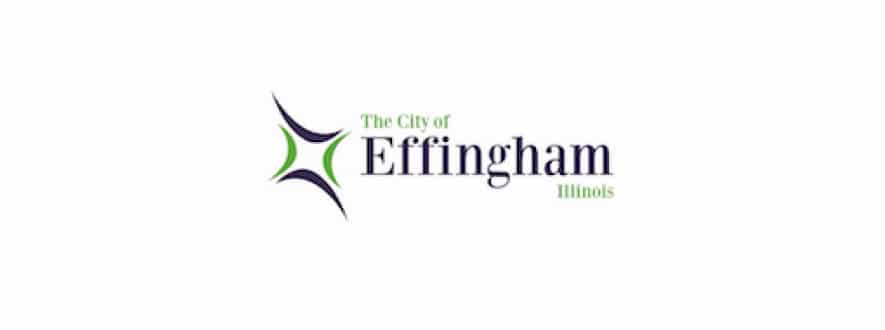




Ride Illinois can help your community become more bike-friendly. The southern Illinois town of Effingham has been a case study on different ways we assist towns in building bicycle infrastructure.
The nonprofit Trail Recreation Effingham County (TREC) group, led by longtime (2009-2018) Ride Illinois board president Frank Brummer, wants to improve its community through trails and biking. TREC had a goal of creating a network of trails on the west side of Effingham, plus elsewhere in the county. Through Frank and TREC’s work and partnerships, Effingham now has miles of off-road trail, a ped/bike bridge over an interstate, and a soon-to-be implemented network of bike lanes in town.
Ride Illinois’ role has been to provide expert assistance over the years. Frank and TREC have (remarkably) been able to secure well over half a million dollars of private, local donations for their efforts. With some Ride Illinois strategic advice on accessing state and federal bikeway grants, those donations acted as the local matches for several million dollars more for trail construction.
Frank convinced the City of Effingham to hire Ride Illinois to develop the city’s bicycle plan. The plan specified details for a proposed (mostly on-road) bike network in the town itself, while leading to the TREC project applications scoring higher in grant selection criteria.
After some time without implementation of the planned in-town bike lane network, Ride Illinois suggested a new approach of seeking one Illinois Transportation Enhancements Program (ITEP) grant to add much of that network at one time. Previously in the state, ITEP had only been used on individual trail projects. With Ride Illinois there for expert support, Frank persuaded the City to apply for the grant – which it later won.
Recently, grant implementation hit engineering obstacles that endangered most of the bike lanes to be built with the funds. The resulting traffic lane widths after bike lane striping would be narrower than the current standards in IDOT’s manual. Also, IDOT insisted that special bicycle loop detectors were needed to trigger green lights where the routes met stoplights – and the budgetary increase would necessitate removing some routes.
On the first issue, Ride Illinois quoted more recent federal guidance and national studies allowing for the narrower lane widths. For the second, we described how tuning the existing detectors’ amplifiers and adding pavement markings on the trigger “hot spots” could eliminate the need for additional hardware. That worked, and the new information on lane widths was well-received. As a result, Effingham is a step closer to getting its bike lane network, as planned.
Whether it’s infrastructure expertise, grant strategy help, education and enforcement resources, or more, Ride Illinois is here to help advocates and agency staff make their towns more bike-friendly.